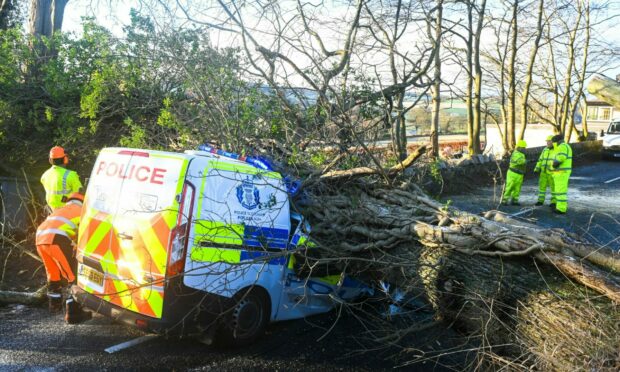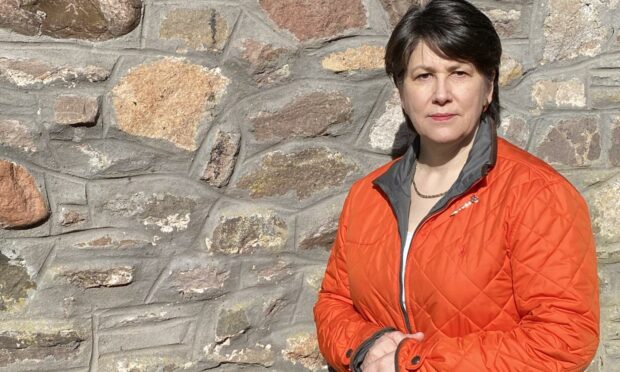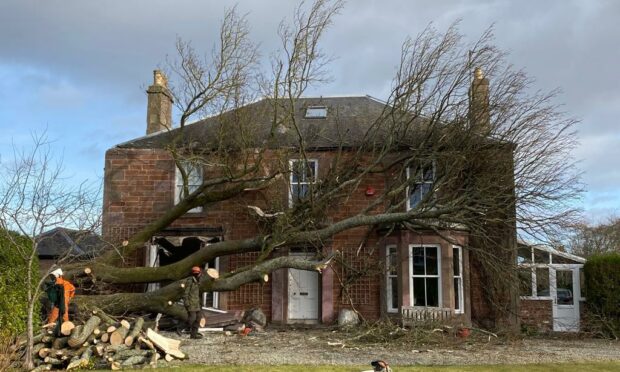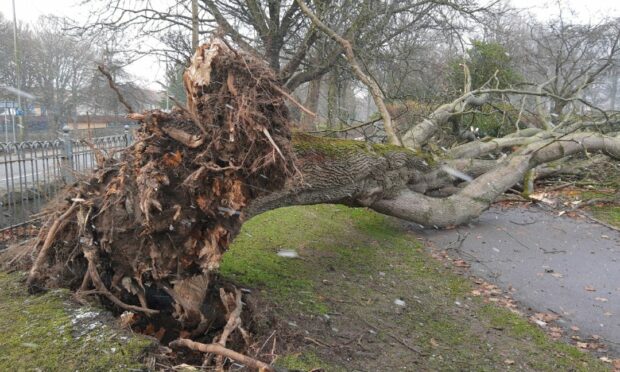Nicola Sturgeon is facing fresh demands to draw up a plan to protect rural communities from the devastation caused by extreme weather events.
A series of major storms – Arwen, Barra, Malik and Corrie – battered Scotland last winter, with winds reaching up to 90 mph.
This left thousands of people without power, water and phone signal, and led to the tragic loss of life.
North-east MSP Tess White is taking the call to Holyrood so communities are “protected” by this winter.
The region was among the worst-hit by the storms.
Aberdeenshire Council faces a repair bill of more than £900,000 to fix storm damage across the region.
Angus Council is still totting up the cost of the winter storms.
Perthshire was also badly hit by wild weather.
‘Profound and prolonged hardship’
The Conservative MSP wants the Scottish Government to provide a delivery plan for its Storm Arwen review with clear timescales for implementation ahead of winter.
In Holyrood on Wednesday, she will also highlight the need to improve communication on the ground, as well as information identifying vulnerable people who need help and support in an emergency.
“These major storms had a shattering effect on communities across Scotland,” she said before the parliamentary debate.
“The north-east in particular experienced profound and prolonged hardship.
“Following Malik and Corrie, the storm damage was so severe that Edzell was completely cut off by fallen trees.
“In Fettercairn, sheltered housing complex Queen Elizabeth Court was without power for three nights.
“In Stonehaven, residents did not know where to go to access much-needed support.
“The scale of human endeavour to help the stranded and hungry will stay with us in the north-east for a long time, as will the haunting images of the devastation in places like Kemnay, Fettercairn and Edzell, where forests were all but flattened.”
The Conservative MSP will add that “more should have been done to build resilience and protect communities”.
Storm Arwen review
The Scottish Government published a review into how the country responded to the “exceptional” Storm Arwen earlier this year.
It recommended wide-ranging changes to the way Resilience Partnerships – which include councils, police and health boards – operate in response to such incidents.
The 15 recommendations include improving how those most at risk are found and supported, better use of volunteers and community support, and more accurate communication by energy companies.
Others include practising mass door-knocking in areas affected by power outrages in future to ensure the welfare of affected people.
A further update is due to be provided by the Scottish Government next month.
A Scottish Government spokeswoman said: “The learning and improvement process from Storm Arwen and other recent severe storms is underway, following our review published earlier this year.
“The Scottish Government and responder organisations have been working hard on many of the review’s recommendations since its publication, and we are confident that we will be able to demonstrate meaningful progress on these in our update report next month.
“Our existing public information campaign, Ready Scotland, is evolving in light of this review to ensure that households and communities are as well supported in their preparations for these types of emergencies as possible.”



